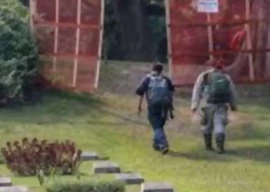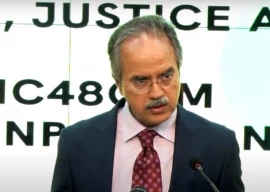
Flashpoint Korea
Although this incident is extremely serious and both sides have issued verbal warnings of 'retaliation' it seems unlikely that all-out war is imminent. Much is made of the threat posed by North Korean nuclear weapons – but the reality is that the threat is mostly theoretical, with the far greater threat posed by their conventional forces. So what is going on? It seems that the North Koreans are stepping over a line to see what response is made. (thenews.com.pk)
North Korean attack
What motives the communist government had in unleashing the artillery bombardment is difficult to fathom. With his health failing, President Kim Jong-il has indicated his son Jong-un will succeed him, but it is not clear in what way the attack on the island will bolster his son’s image and help his people, who have suffered economic hardships because of the regime’s nuclear policy, which has led to the country’s isolation. (dawn.com)
North Korea scrutinised again
Whichever way one chooses to look at it and whichever side one chooses to believe, there is cause for concern in a region that has been a hotbed of confrontation and uneasy peace since 1953. The Korean War may have ended in 1953 but with the presence of some 28,000 US troops in South Korea, Japanese support for the South and North Korea having built nuclear weapons to counter its neighbour’s nuclear umbrella agreement with the US, peace exists on very fragile terms. (dailytimes.com.pk)
The two Koreas
There has to be international guarantees for foolproof security for the North, coupled with clear moves for global non-proliferation. That the armistice that brought the Korean War to an end has yet to be converted into a peace treaty after six decades only attests to that one-sided pressure. Yes, such a denial may be of some military advantage to the United States, but it remains an obstacle to fuller restoration of peace in the region, which is home to the world's three large economies, of China, Japan and South Korea. (brecorder.com)

1721377568-0/BeFunky-collage-(18)1721377568-0-165x106.webp)





















COMMENTS
Comments are moderated and generally will be posted if they are on-topic and not abusive.
For more information, please see our Comments FAQ